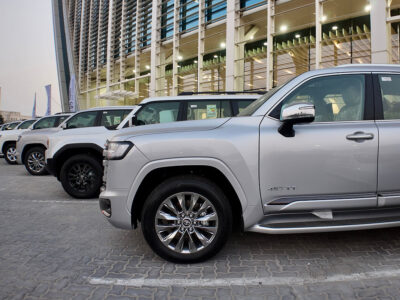While new UAE car insurance rules have led to increased prices, experts argue that the new rules have also resulted in greater benefits and mandatory coverage.
Online marketplace for car insurance ServiceMarket.com teamed up with global multi-line insurer Qatar Insurance to explain how these new rules really impact UAE drivers.
Free replacement car if you are not at fault:
If you had previously gone into an accident, you would only get a replacement car if it was included in your car insurance policy, irrespective of whether or not you caused the accident. However, under the new rules, if you are not at fault, you will automatically be provided with a replacement car or compensation equivalent to the cost of a replacement car by the other party’s insurance provider. This compensation will be provided for a maximum of 10 days and up to AED300 ($82) per day.
Extension of liability coverage to family members:
In the past, relatives were not necessarily covered in case of an accident. They would only be covered under the passenger accident benefit, which was usually an add-on to insurance policies and came at an additional cost. Under the new rules, the coverage will be extended so that it covers car accidents involving close family members such as the husband, wife, children or parents.
Increase in cover for property damage:
The maximum insured amount for damage to third party property due to a car accident has increased significantly from AED250,000 ($68,000) to a maximum of AED2m ($545,000).
Clearer rules on when a car should be declared as a total loss:
If the chassis of your vehicle is damaged and the damaged part cannot be replaced, the insurer must declare the car as a total loss and will not be allowed to try to repair the car. The car owner will either get a new car or will be paid the market value of the car – which is usually specified in your insurance policy.

Clarity on policy breakdown:
Typically, customers were able to get quotes for either a third party liability (TPL) insurance or comprehensive insurance. Many customers did not fully understand the difference between the two and the cover provided in each. A comprehensive insurance policy is actually a bundle of covers that combines third party liability insurance with “own damage” cover, which covers damages to your own car. Under the new rules, customers would be able to get separate quotes for TPL and “own damage” cover. They would even be able to purchase these from different insurance companies.
Maximum specified premiums:
Under the new rules, premiums must not exceed 5 per cent of the value of a saloon car or 7 per cent of the value of a SUV. These new regulations only apply to insurance policies bought from January 1, 2017. So if you bought your insurance last year, the terms and conditions of your policy still hold.
The implication on the cost of insurance:
The new rules have other direct impact on costs including stricter rules on policy excess (the amount the customer must pay towards the cost of repairing their car in case of an accident). The new rules specify a maximum excess, which will result in lower excess on customers’ insurance policies. It is also still possible for customers to select a higher voluntary excess to get a lower premium. In addition, UAE car insurers will no longer be able to charge additional policy fees (such as ambulance or medical evacuation fees charged in Dubai or Emirates Vehicle Gateway fees charged in Abu Dhabi and Sharjah).
The new minimum rates:
While it was previously possible to get a comprehensive car insurance policy for a sedan or SUV car starting from AED1,050 ($285), the new minimum comprehensive rates have been set to AED1,300 ($255) for sedan cars and AED2,000 ($545) for SUVs.





